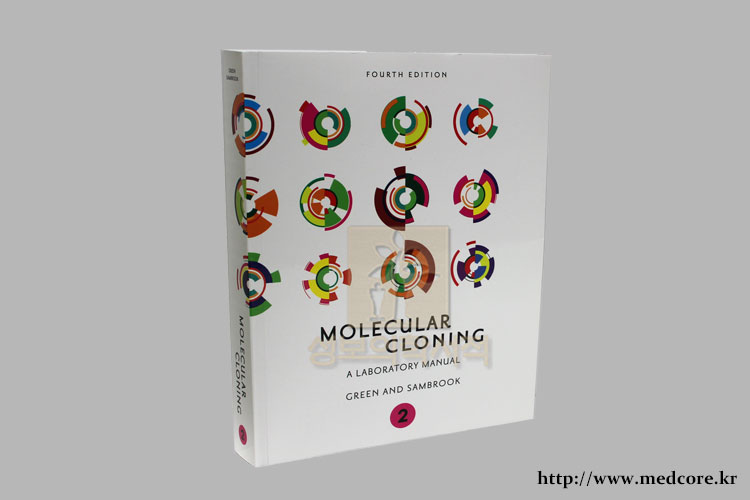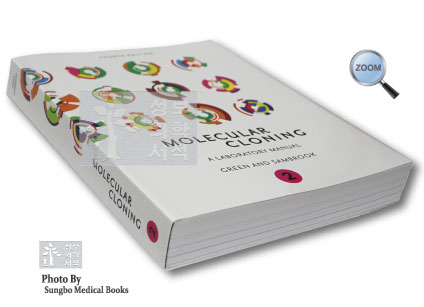Molecular Cloning has served as the foundation of technical expertise in labs worldwide for 30 years. No other manual has been so popular, or so influential. Molecular Cloning, Fourth Edition, by the celebrated founding author Joe Sambrook and new co-author, the distinguished HHMI investigator Michael Green, preserves the highly praised detail and clarity of previous editions and includes specific chapters and protocols commissioned for the book from expert practitioners at Yale, U Mass, Rockefeller University, Texas Tech, Cold Spring Harbor Laboratory, Washington University, and other leading institutions. The theoretical and historical underpinnings of techniques are prominent features of the presentation throughout, information that does much to help trouble-shoot experimental problems. For the fourth edition of this classic work, the content has been entirely recast to include nucleic-acid based methods selected as the most widely used and valuable in molecular and cellular biology laboratories. Core chapters from the third edition have been revised to feature current strategies and approaches to the preparation and cloning of nucleic acids, gene transfer, and expression analysis. They are augmented by 12 new chapters which show how DNA, RNA, and proteins should be prepared, evaluated, and manipulated, and how data generation and analysis can be handled. The new content includes methods for studying interactions between cellular components, such as microarrays, next-generation sequencing technologies, RNA interference, and epigenetic analysis using DNA methylation techniques and chromatin immunoprecipitation. To make sense of the wealth of data produced by these techniques, a bioinformatics chapter describes the use of analytical tools for comparing sequences of genes and proteins and identifying common expression patterns among sets of genes. Building on thirty years of trust, reliability, and authority, the fourth edition of Molecular Cloning is the new gold standard--the one indispensable molecular biology laboratory manual and reference source.
- 목 차 -
VOLUME 1
Part 1: Essentials
1. Isolation and Quantification of DNA
2. Analysis of DNA
3. Cloning and Transformation with Plasmid Vectors
4. Gateway Recombinational Cloning
John S. Reece-Hoyes and Albertha J.M. Walhout
5. Working with Bacterial Artificial Chromosomes and Other High-Capacity Vectors
Nathaniel Heintz and Shiaoching Gong
6. Extraction, Purification, and Analysis of RNA from Eukaryotic Cells
7. Polymerase Chain Reaction
8. Bioinformatics
Jui-Hung Hung and Zhiping Weng
VOLUME 2
Part 2: Analysis and Manipulation of DNA and RNA
9. Quantification of DNA and RNA by Real-Time Polymerase Chain Reaction
10. Nucleic Acid Platform Technologies
Oliver Rando
11. DNA Sequencing
Elaine Mardis and W. Richard McCombie
12. Analysis of DNA Methylation in Mammalian Cells
Paul M. Lizardi, Qin Yan, and Narendra Wajapeyee
13. Preparation of Labeled DNA, RNA, and Oligonucleotide Probes
14. Methods for In Vitro Mutagenesis
Matteo Forloni, Alex Liu, and Narendra Wajapeyee
Part 3: Introducing Genes into Cells
15. Introducing Genes into Cultured Mammalian Cells
Priti Kumar, Arvindhan Nagarajan, and Pradeep D. Uchil
16. Introducing Genes into Mammalian Cells: Viral Vectors
Guangping Gao and Miguel Sena-Esteves

Part 4: Gene Expression
17. Analysis of Gene Regulation Using Reporter Systems
Pradeep D. Uchil, Arvindhan Nagarajan, and Priti Kumar
18. RNA Interference and Small RNA Analysis
Chengjian Li and Phillip D. Zamore
19. Expressing Cloned Genes for Protein Production, Purification, and Analysis
Clara L. Kielkopf, William Bauer, and Ina Urbatsch
Part 5: Interaction Analysis
20. Cross-Linking Technologies for Analysis of Chromatin Structure and Function
Tae Hoon Kim and Job Dekker
21. Mapping of In Vivo RNA-Binding Sites by UV-Cross-Linking Immunoprecipitation (CLIP)
Jennifer C. Darnell, Aldo Mele, Ka Ying Sharon Hung, and Robert B. Darnell

John S. Reece-Hoyes and Albertha J.M. Walhout
Appendices
1. Reagents and Buffers
2. Commonly Used Techniques
3. Detection Systems
4. General Safety and Hazardous Material
[성보의학서적]
